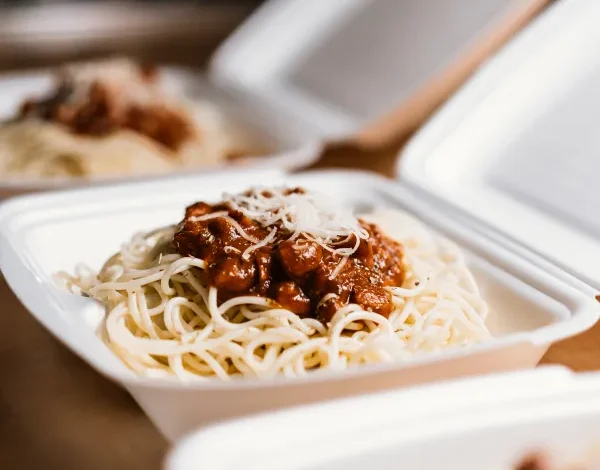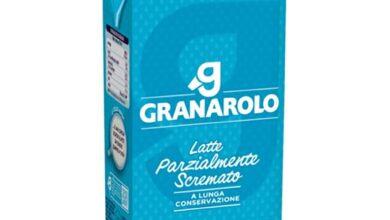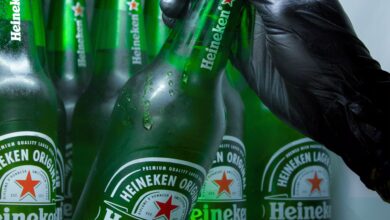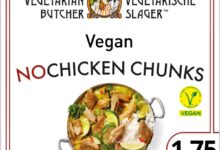
The food industry is on the brink of a revolution, driven by the power of Artificial Intelligence (AI). From automated food production to personalized nutrition, and from supply chain optimization to quality control, AI is redefining how food is produced, distributed, and consumed. This article provides a comprehensive overview of what AI means in the food industry, its applications, the key players, and what we can expect from this rapidly evolving technology in the future.
What Does AI Mean in the Food Industry?
Artificial Intelligence (AI) refers to the simulation of human intelligence in machines that are programmed to think and act like humans. In the food industry, AI can be deployed to solve complex problems ranging from production processes to consumer preferences.
AI systems utilize various techniques such as machine learning, deep learning, natural language processing (NLP), and computer vision. These techniques are applied to analyze data, recognize patterns, and build predictive models that help companies make informed decisions.
Applications of AI in the Food Industry
Production Optimization
AI aids in optimizing production processes through predictive maintenance, reducing downtime, and improving efficiency. Advanced sensors and AI algorithms can analyze real-time data to identify potential issues before they occur. For example, Coca-Cola uses AI to monitor the performance of production lines and predict maintenance needs.
Supply Chain Management
AI is used to optimize supply chains by improving demand forecasting, inventory management, and logistics. This results in lower costs and faster product delivery. PepsiCo utilizes AI for demand forecasting and inventory management, leading to less waste and higher efficiency.
Quality Control
AI systems with computer vision can inspect food products for quality and safety, detecting anomalies that are invisible to the human eye. Nestlé uses AI for quality control on their production lines, resulting in less product waste and higher product quality.
Personalized Nutrition
By analyzing consumer data, AI systems can make personalized dietary recommendations based on individual health goals, dietary preferences, and allergies. Nutrigenomix uses AI to conduct genetic tests and provide personalized nutrition advice.
Predicting Consumer Preferences
AI helps companies understand what consumers want by analyzing vast amounts of data such as purchasing behavior, social media activity, and feedback. McDonald’s uses AI to analyze customer preferences and make personalized menu recommendations.
Smart Agriculture
AI is also applied in agriculture to improve efficiency and sustainability. Companies like Prospera Technologies use AI to monitor crop health and assist farmers in making data-driven decisions. These systems can detect pests and diseases and determine optimal times for irrigation and harvesting.
Personalized Consumer Services
AI is used to offer personalized nutritional advice and recipes to consumers. Plant Jammer, a startup from Copenhagen, uses AI to help people cook by suggesting recipes based on available ingredients in their kitchen, reducing waste and promoting creative cooking.

Major Players in the AI Food Industry
IBM Watson
IBM Watson is a leading player in the AI space, established as a significant force in the food industry. Watson uses advanced AI technologies like machine learning and NLP to help companies analyze large amounts of data. For instance, Kraft Heinz uses IBM Watson to optimize product development processes by creating new flavors and products based on consumer trends and preferences.
Google AI
Google AI offers powerful machine learning tools and AI platforms used by many companies in the food industry. Known for its cloud computing capabilities and user-friendly AI tools, Google AI has invested in Blue River Technology, which uses AI to identify and remove weeds in agricultural fields, leading to more efficient use of herbicides and higher crop yields.
Microsoft Azure
Microsoft Azure is a leading cloud computing service offering AI solutions for the food industry. Azure’s AI tools are used for everything from predictive analytics to advanced machine learning models. AB InBev uses Microsoft Azure to optimize their supply chain through AI-driven demand forecasting and network optimization, resulting in lower costs and faster delivery times.
Amazon Web Services (AWS)
AWS offers a wide range of AI and machine learning services used by food industry companies to improve processes and drive innovation. Beyond Meat uses AWS AI to analyze consumer data and develop new plant-based products that better match consumer preferences and needs.
Cargill
Cargill, one of the world’s largest food producers, has heavily invested in AI technologies to optimize their operations and drive innovation. Cargill uses AI to improve product traceability, providing consumers with more transparency about the origins and production methods of their food.
Nestlé
Nestlé, a global leader in nutrition and health, leverages AI to improve operations and offer personalized products. Henri@Nestlé is an AI-driven chatbot that helps consumers find products that meet their dietary needs, offering a more personalized shopping experience.
Future of AI in the Food Industry
The future of AI in the food industry looks promising, with ongoing innovations and applications transforming how we produce, distribute, and consume food. Some key trends and developments we can expect in the coming years include:
Increased Automation
As AI technologies become more advanced, we will see an increase in the automation of production and processing, leading to higher efficiency and lower costs. For instance, advanced robots driven by AI can perform complex tasks like picking ripe fruit without damaging it.
Personalized Nutrition
AI will play a crucial role in developing personalized nutritional products tailored to individual health needs and preferences, leading to better health outcomes and higher customer satisfaction. Companies like Viome use AI to develop personalized nutrition plans based on individual microbiomes.
Predictive Analytics
With improved predictive analytics, companies will be better able to forecast demand, resulting in more efficient inventory management and less food waste. Walmart uses AI to make accurate demand forecasts, optimizing inventory management and minimizing waste.
Sustainability
AI will help promote sustainable agricultural practices through precise monitoring and analysis of environmental data, leading to more efficient use of natural resources and reduced ecological footprint. Companies like Prospera Technologies use AI to monitor crop health and assist farmers in making data-driven decisions.
Enhanced Food Safety
With advanced AI technologies, companies will be able to improve food safety by early detection of contaminants and quality issues, resulting in safer food products for consumers. Clear Labs uses AI to perform DNA analyses and detect contaminants in food products.
Conclusion
AI is a transformative force in the food industry, with applications ranging from production optimization and supply chain management to personalized nutrition and food safety. The biggest players in this space, such as IBM Watson, Google AI, Microsoft Azure, AWS, Cargill, and Nestlé, continue to innovate and invest in AI technologies to improve their operations and meet the changing needs of the market. Future developments in AI promise to bring even more efficiency, sustainability, and personalized solutions, continuing to transform and innovate the food industry.










